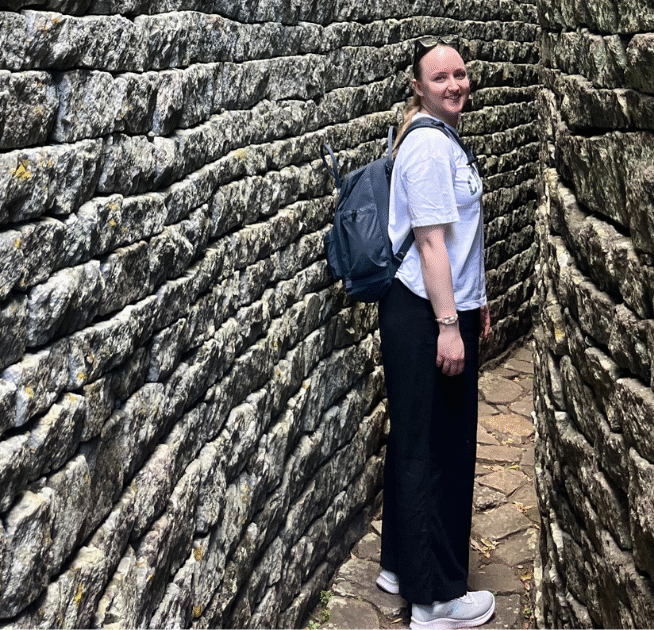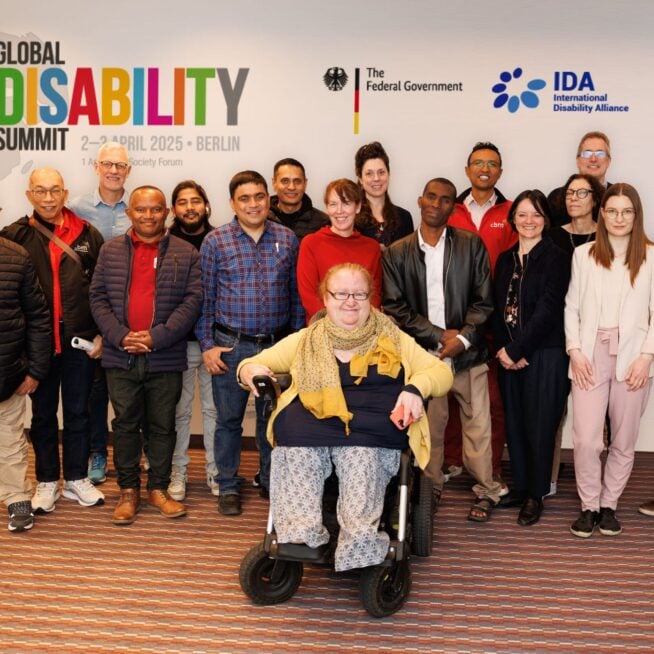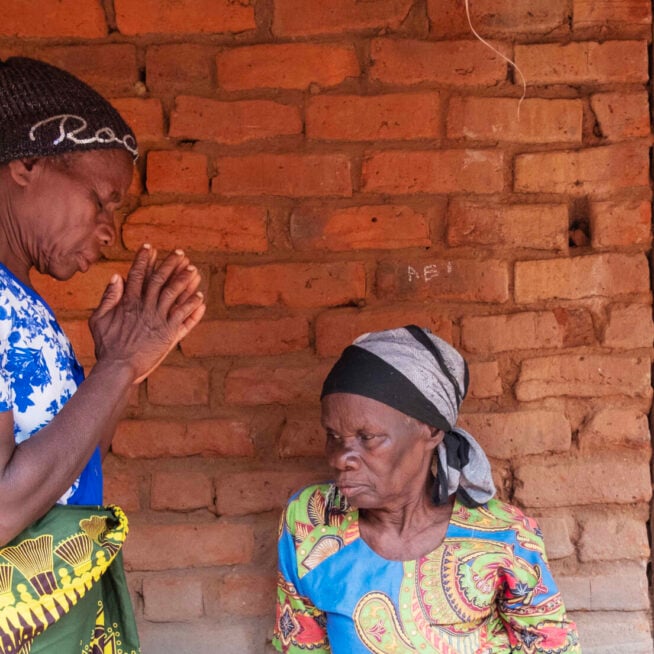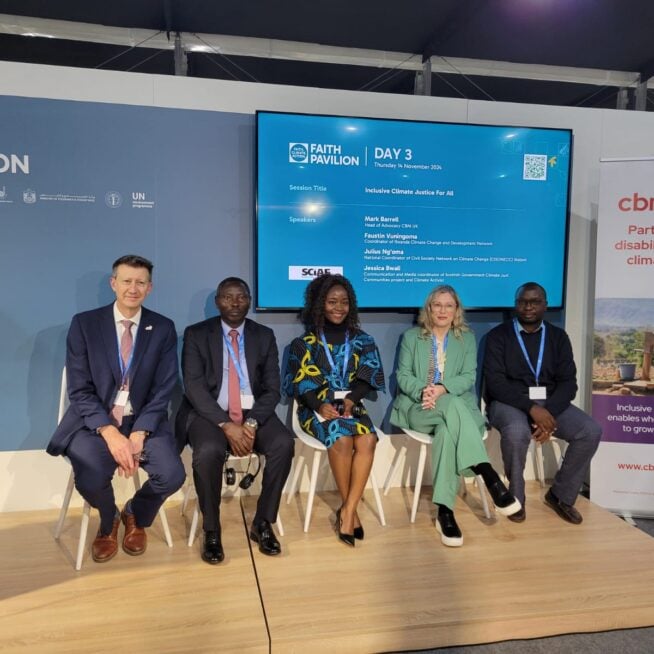Want to transform lives with us? Stay in touch and hear about our news, activities and appeals by email!
Three ways to fight discrimination: Zero Discrimination Day 2023
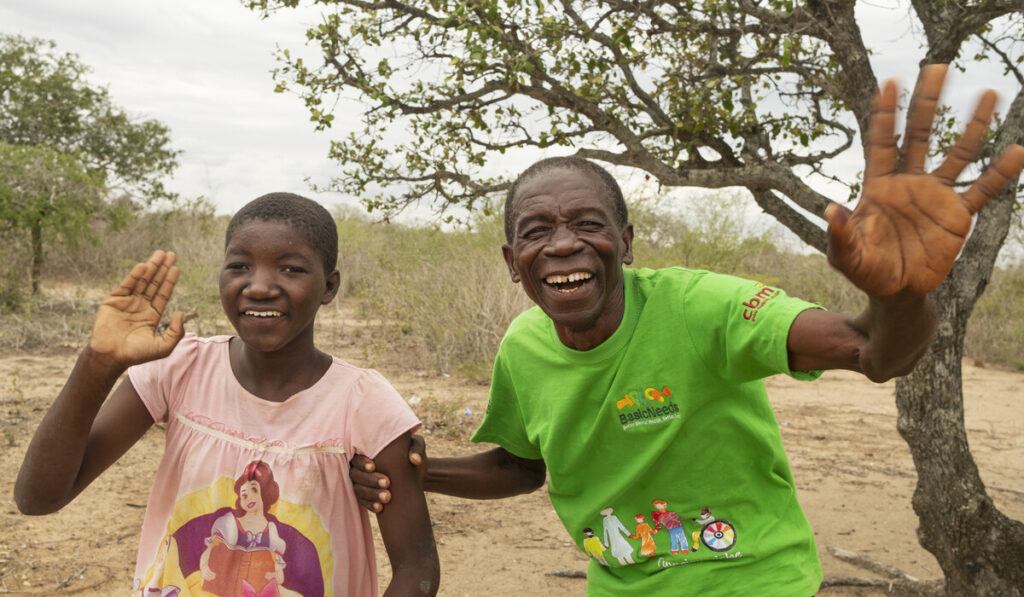
Co-written by Rosemary Gathara (BasicNeeds Kenya) and Ursula Grant (CBM UK)
Today, on Zero Discrimination Day, we want to take a stand against the discrimination faced by people with psycho-social disabilities worldwide. This sort of discrimination means that people are being treated differently, excluded from essential services or restricted in how they can live their lives.
At CBM we work with our partners to highlight the rights of people with disabilities to live happy and productive lives, with dignity and respect, just like anyone else in the world. This means working to turn around negative attitudes towards disability. It means raising awareness of the experiences of people with disabilities at community and government levels, and among employers and service providers. It means fighting against discriminatory laws and policies, and the stigmatizing attitudes and behaviours that underlie them.
BasicNeeds Kenya
People with psycho-social disabilities are often among the most stigmatized and discriminated. CBM partner BasicNeeds Kenya is dedicated to protecting and promoting the basic needs and rights of people with mental health challenges and their caregivers in order to address the inequalities, dehumanization and discrimination that such people often face. They work in multiple ways to achieve this. Rosemary Gathara, CEO, highlights three priority areas here for us to consider, based upon successful practice in Kenya:
1. Negative media coverage of mental health needs to be challenged:
Media coverage has traditionally used very negative imagery of people with mental health conditions. This coverage labels people in unhelpful ways, or reports people’s stories at their lowest moments, without considering the impact on them, or those closest to them. Typically, negative reports have linked people with mental health conditions to violence and presented them as a threat to society.
However, media can also be a source for good in combatting stigma by influencing the way that people think about the issues and people around them. It is a powerful resource for reaching people in remote areas, particularly via radio coverage. BasicNeeds Kenya works with different media to present mental health more positively, (using, for example, the language of “someone just like me”). They work with journalists, developing reporting guidelines with them, and training them to use language in non-stigmatizing ways – including resourcing them with wording to use, rather than wording to avoid.
Positive change has been realized in Kenya. Journalists are now more likely to report on stories in more positive, empowering ways, and challenge those who do not report in a respectful way. It is no longer unusual to see reports celebrating people who are recovering and shown in a dignified way, or for journalists to reach out to content generators for help on how to tell the stories. There is still work to do, but in 2022 BasicNeeds Kenya partnered with the Media Council of Kenya to give a special journalistic award to reporters whose stories are changing the mental health narrative.
2. Person-centred health services require health care staff who are compassionate and non-judgmental:
It is vital to address stigma and discrimination in healthcare settings, and deal with the fact that stigma exists within the very organisations that should be supporting people with psycho-social disabilities. Shaming people for their mental health status discourages them from taking up services and claiming their human rights.
Rosemary comments,
“It is not enough to do awareness alone, however. If we don’t tackle infringement on people’s rights, awareness alone won’t change anything.”
People may understand that someone has a mental health condition, but that doesn’t necessarily change the way they treat that person, or set expectations of them and their life. Use of medicines to control people or locking them away may be ‘what we’ve always done’ or used to manage mental health conditions in contexts where there are limited health workers, but this is against people’s human rights. At times, the criminal justice system also takes rights away, for example property is taken from you. Such interventions are not conducive to sustained recovery.
Again, Kenya is seeing progress in this area. BasicNeeds Kenya has been appointed by the Director General Ministry of Health to the national QualityRights Coordination Committee with an aim of promoting human rights and improving the quality of care standards in mental health and related services.
3. Involving people with lived experience is essential to changing attitudes and behaviours:
BasicNeeds Kenya works closely with mental health champions, who are trained and supported to share their stories and bring discussion of mental health out of the shadows, where it can deepen shame and cause exclusion. Training helps individuals to recognize the power in their experiences, and learn how to vocalise them. Sharing with others who are going through similar experiences not only helps others come to a better understanding of their own situation, but it can be healing and empowering for the champion as well. This is a very powerful approach for working towards greater acceptance of diversity, reducing stigma and ending discrimination.
There are a growing number of opportunities for people to bring their personal experiences to bear in engagement with different duty bearers, including government and public sector workers, community leaders and carers. Opportunities are growing for people with lived experiences to be involved in radio discussions or in supporting journalists to understand different, more empowering ways of reporting. These initiatives are changing the narrative around mental health.
Today, on Zero Discrimination Day, we trust that the success of BasicNeeds Kenya will inspire many others to battle on in the fight against discrimination. In the words of mental health champion Edwin Mburu (Mentally Unsilenced, Kenya): “Stigma will die when we speak to it” – together, let’s work to see this happen.
Keen to hear more? Watch CBM UK’s Let’s End Disability Stigma video
Photo: Zawadi, 18, with her father in Bengoni, Kenya. Zawadi has physical disabilities including a visual impairment. They are part of a group supporting the mental health of people with disabilities. Copyright CBM/Hayduk.

